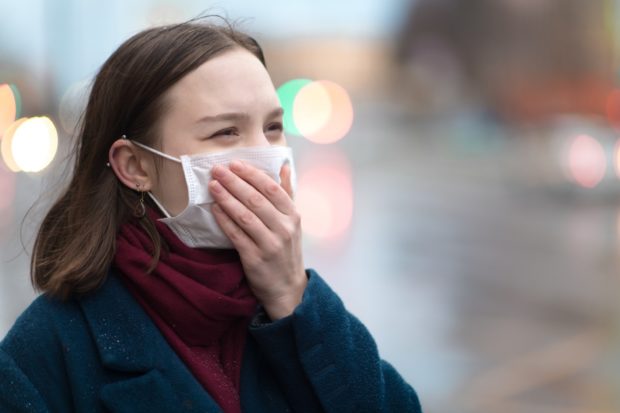Study confirms key symptoms to look out for in COVID-19 cases

Image: ArtMarie/Istock.com via AFP Relaxnews
A new large-scale review has confirmed some of the major symptoms associated with COVID-19, including a persistent cough, fever and loss of smell.
Carried out by researchers from the University of Leeds, United Kingdom along with four other universities, the new review is one of the biggest so far to investigate COVID-19 symptoms and included data from 148 separate studies.
In total, the researchers had access to data on 24,410 adult cases of COVID-19 in nine countries, including the U.K., China and the United States, which enabled them to identify the common symptoms of the virus.
The findings, published in the online journal PLoS ONE, showed that the most common symptom of the virus was fever, which was found in 78% of COVID-19 cases. However, the researchers also found that the rates of this symptom varied from country to country, with 72% of patients in Singapore reporting a fever, compared to just 32% of patients in Korea.
The second most common symptom was a cough, found in 57% of patients, but again, the number of patients who reported this symptom varied in each country, from 76% in the Netherlands compared to 18% in Korea. The researchers say that these variations could be due to the way data was collected.
Other common symptoms included fatigue (31% of cases), a loss of smell (25%) and difficulty breathing (23%).
The researchers also found that from the patients who required hospital treatment, 19% were in the intensive care unit, 17% needed non-invasive help with their breathing, 9% needed invasive ventilation and 2% needed an artificial lung. The mortality rate was 7%.
They say that the findings confirm the list of symptoms given by the World Health Organization at the start of the pandemic. However, they also add that it’s likely that a large proportion of people who had the virus did not display symptoms.
Ryckie Wade, a surgeon and Clinical Research Fellow at the Leeds Institute of Medical Research who supervised the research commented on the findings saying, “This analysis confirms that cough and fever were the most common symptoms in people who tested positive with COVID-19.”
“This is important because it ensures that people who are symptomatic can be quarantined, so they are not infecting others,” he added. “The study gives confidence to the fact that we have been right in identifying the main symptoms and it can help determine who should get tested.” IB
RELATED STORIES:
Study shows how quickly coronavirus spreads at home
Rates of ‘symptomless’ COVID-19 infections may be higher than previously thought, study finds
For more news about the novel coronavirus click here.
What you need to know about Coronavirus.
For more information on COVID-19, call the DOH Hotline: (02) 86517800 local 1149/1150.
The Inquirer Foundation supports our healthcare frontliners and is still accepting cash donations to be deposited at Banco de Oro (BDO) current account #007960018860 or donate through PayMaya using this link.